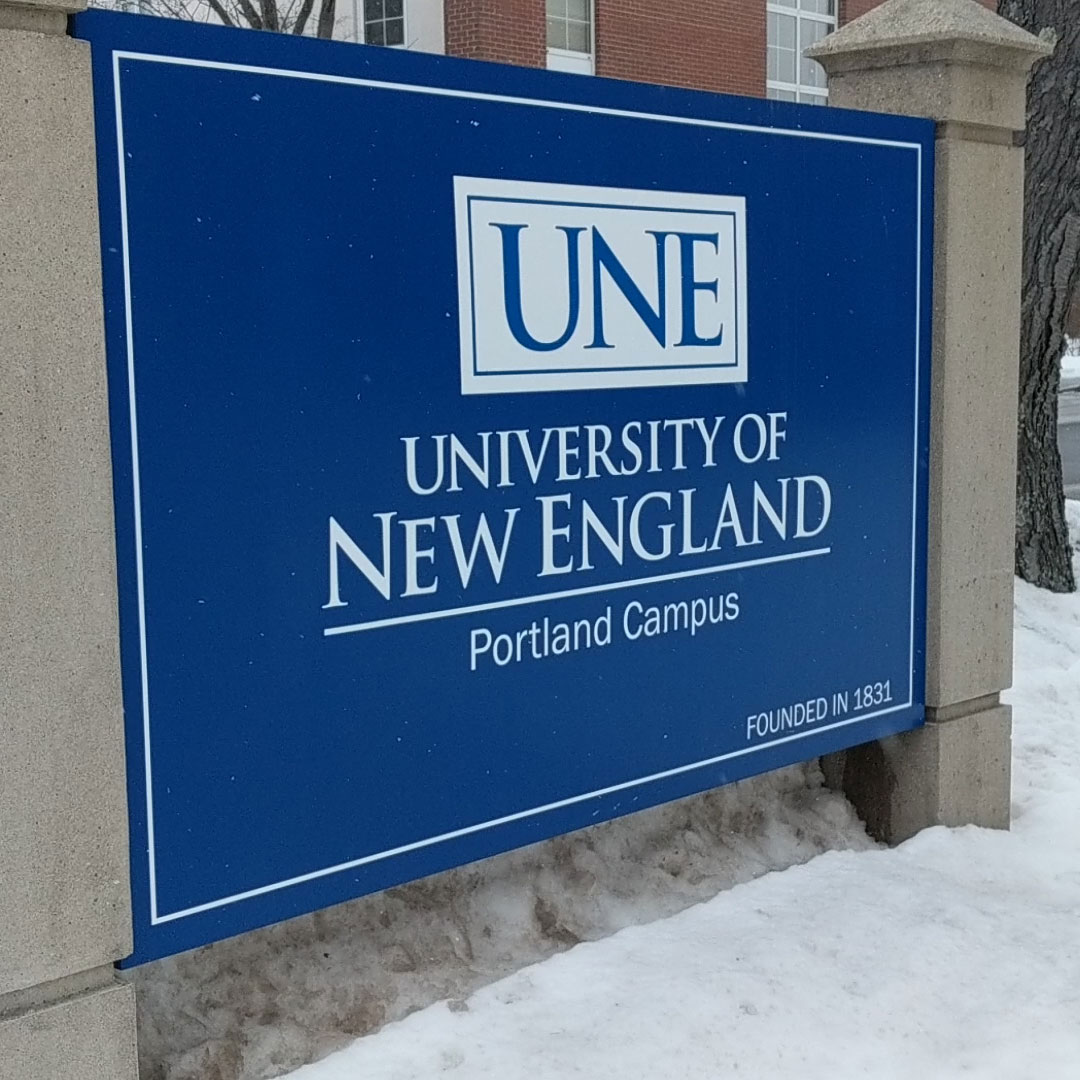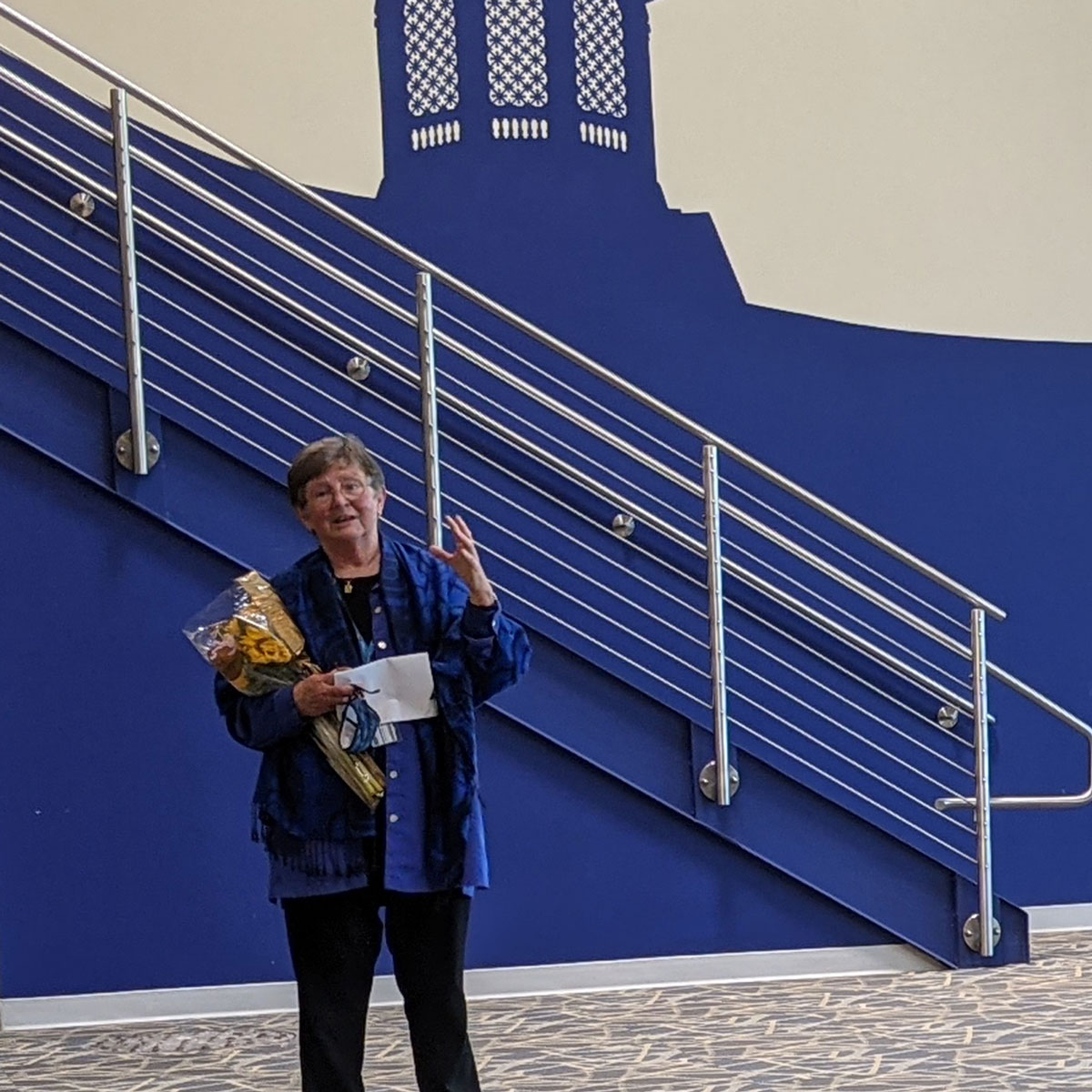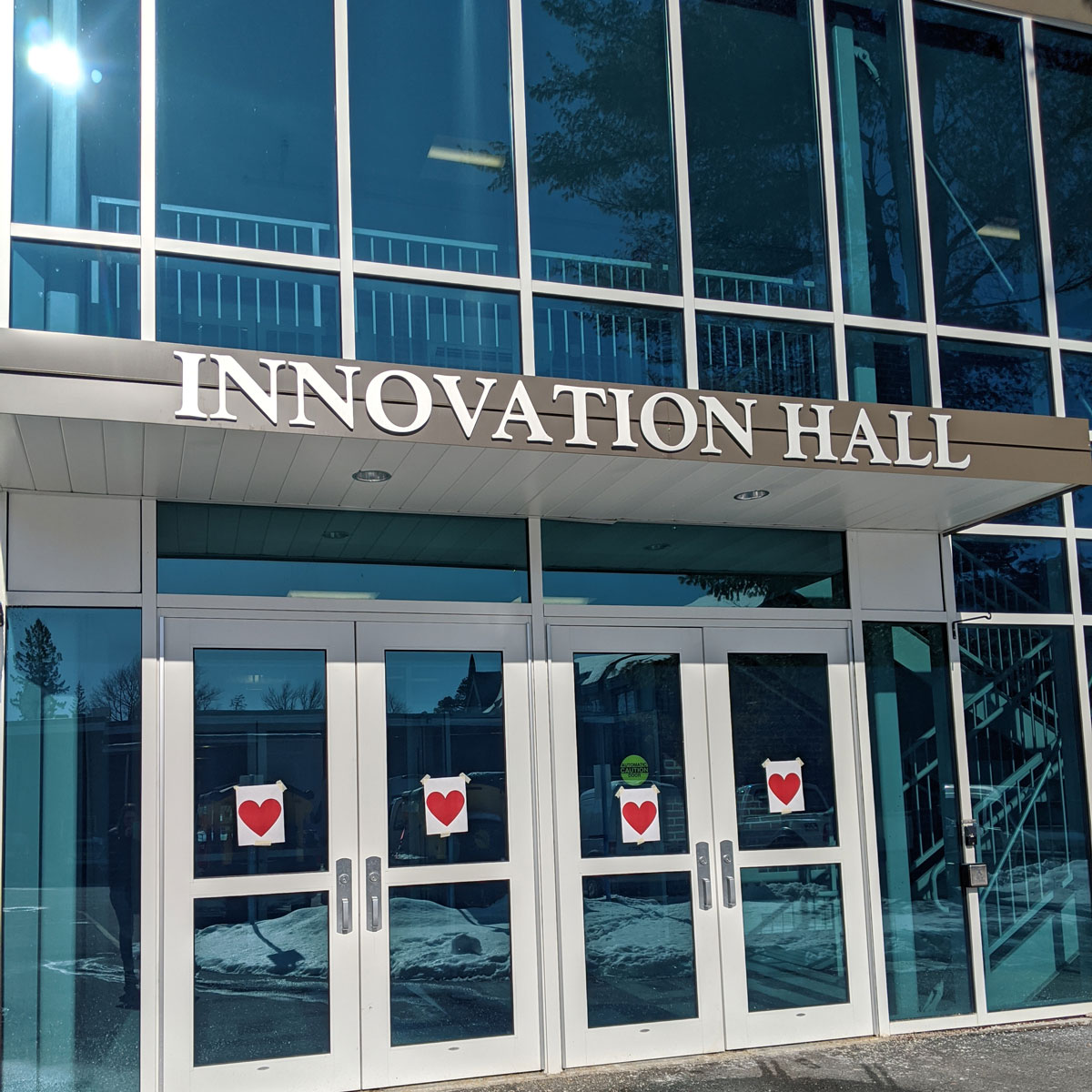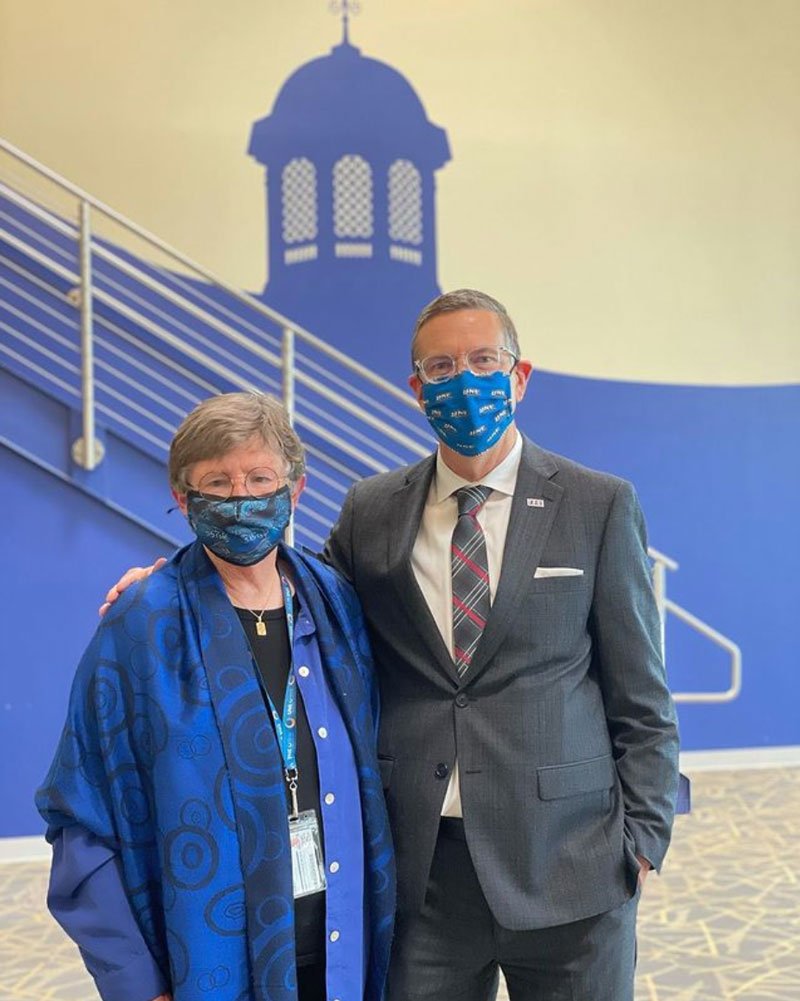History of the College of Graduate and Professional Studies – UNE Online
 The College of Graduate and Professional Studies – also known as UNE Online – is a college within the University of New England, offering accredited online graduate and professional programs that use a learner-centered approach, specifically designed to accommodate professional schedules and to foster collaborative learning communities.
The College of Graduate and Professional Studies – also known as UNE Online – is a college within the University of New England, offering accredited online graduate and professional programs that use a learner-centered approach, specifically designed to accommodate professional schedules and to foster collaborative learning communities.
The beginning of online learning at UNE
The University of New England has been offering online education opportunities since 1998. While all online programs at UNE are currently managed within UNE Online, the first matriculated degree programs were managed by an outside OPM vendor, Compass Knowledge Group, which provided marketing, recruitment, retention, and instructional design services in exchange for a portion of student revenue. In 2007, UNE contracted with Compass Knowledge Group to manage the Master of Science in Education program, and then in 2009 to manage the Master of Social Work program. The online MSW was the first fully asynchronous CSWE-accredited master’s degree in the nation.
The development of OWL – Online Worldwide Learning
In 2011, Dr. Danielle Ripich, then president of UNE, approached Dr. Martha Wilson, then Director of the School of Social Work, with her vision to create a unit within UNE to manage all of the University’s online programs in-house. In 2012, the University established the Office of Online Worldwide Learning (OWL) as a business-oriented unit that focused on the marketing, recruiting, and retention of online students using nationally accepted best practice standards.
The student-centric approach of the unit embraced the philosophy that relationship is critical to student success in the online classroom. OWL provided marketing, recruiting, and retention services as a centralized unit (or OPM) to all online program offerings across the University. Additionally, OWL provided instructional design services to the university’s online offerings through the creation of new courses or the redesign of the current course offerings.
At the beginning of the 2012-13 academic year, OWL began providing services to the Master of Public Health program and launched the Doctorate in Education, a newly approved doctoral program. Later in that same year, OWL started servicing the science prerequisite courses that are now housed in the Science Prerequisites for Health Professions program (SPHP).
The formation of CGPS
 To synergize the strengths and opportunities for online learning at the University, the management of all online programs was brought under the College of Graduate Studies in 2014. The College was retitled to incorporate professional education and became the College of Graduate and Professional Studies in that same year. The framework of the College, under the leadership of Dean and Associate Provost for Online Learning Dr. Martha Wilson, focused on enhancing, expanding, and enriching student learning opportunities and innovation.
To synergize the strengths and opportunities for online learning at the University, the management of all online programs was brought under the College of Graduate Studies in 2014. The College was retitled to incorporate professional education and became the College of Graduate and Professional Studies in that same year. The framework of the College, under the leadership of Dean and Associate Provost for Online Learning Dr. Martha Wilson, focused on enhancing, expanding, and enriching student learning opportunities and innovation.
From 2014 to 2017, CGPS focused on transitioning the existing online academic program into the newly founded online College. The OWL unit was the first to transition into the College, followed by the academic programs in public health (2015), education (2015), non-matriculated science prerequisite courses (2015), and social work (2017).
During this time, the College also launched new programs in the field of health informatics (2016) and applied nutrition (2016). More recently, the College launched a Master of Science in Healthcare Administration (2019). Unique to this program is a suite of graduate-level certificates that offer individuals options to individualize their academic plans. Similarly, the Applied Nutrition program designed an ACEND-accredited Registered Dietitian track in its master’s program in 2020.
A focus of the College is to explore new ways of reaching out to adult learners seeking to change careers or complete degrees. In 2015, the University received a Gates Foundation grant to create competency-based learning opportunities. The launch of the Master of Health Informatics program included an undergraduate competency-based completion degree. In partnership with Bangor Savings Bank, the College designed a middle management leadership training program during this same time period. While these projects were singular activities, they provided critical information to the College regarding the work required to develop collaborative partnerships with groups outside higher education.
In 2017, the College underwent an organizational restructure aimed to cultivate collaboration across the academic core while also increasing focus on strategic planning and financial stability. In this restructure, the OWL unit was dissolved and the departments of Finance & Strategy and Academic Operations emerged. The Finance & Strategy unit, under the leadership of the Assistant Dean, is tasked with long-term strategy and financial outlook, portfolio investment allocation, UNE Online brand and marketing, and College-level resource utilization. Academic Operations, under the oversight and leadership of the Associate Dean, maintains focus on the student experience, academic quality and rigor, measurable outcomes and efficiency metrics, and the day-to-day operation of the academic portfolio of the College.
Focused on the student experience
The UNE Online model relies heavily on success through support, from application to graduation. To that end, UNE Online students receive a concierge level of academic, technical, and administrative support to assist them throughout their academic journey.
From initial contact, each potential student is paired with an expert and dedicated Enrollment Counselor. They work together throughout the admissions process to submit the best possible application.
When a student is accepted, a dedicated Student Support Staff member becomes their primary contact within the UNE system. The Student Support Specialist provides guidance for the student and acts as an advocate within the university system to help provide a seamless educational experience.
The extraordinary level of support available to CGPS students is one of the reasons that CGPS has a consistently high graduation rate – students are free to focus on learning.
Deciding where to house CGPS
Critical to this story was where the college should be physically housed. Bringing on more programs meant that the college experienced huge growth in a relatively short amount of time. Dean Wilson’s office was initially a conference room in the School of Social Work. She then moved to the top floor of what is now the Dental College and then moved to take over the entire second floor of McDougall – which was formerly a residence hall. CGPS quickly outgrew the second floor of McDougall and new staffers took over several offices on the third floor of McDougall. When that space was filled, some offices over in Goddard were used as well.
Moving into the Armory for the first time
 At this time, the University bought the building on Stevens Avenue formerly known as the Armory, which housed military personnel. The Instructional Design team was quickly moved over to the Armory into one large room in the middle of the first floor of the building while the second floor of the Armory was partially renovated. When a partial renovation of half of the second floor was complete, the Instructional Design team was moved up there and were shortly joined by the Marketing team. The partial renovation served as a temporary solution until the entire Armory could be completely gutted and renovated.
At this time, the University bought the building on Stevens Avenue formerly known as the Armory, which housed military personnel. The Instructional Design team was quickly moved over to the Armory into one large room in the middle of the first floor of the building while the second floor of the Armory was partially renovated. When a partial renovation of half of the second floor was complete, the Instructional Design team was moved up there and were shortly joined by the Marketing team. The partial renovation served as a temporary solution until the entire Armory could be completely gutted and renovated.
1075 Forest
With both the partially-renovated Armory space and all offices in McDougall full, the University acquired 1075 Forest Avenue, formerly a Unitil office, and now the home of UNE North. The Instructional Design, Marketing, Enrollment, and the Student Support teams were all moved to 1075 Forest, leaving the Armory empty for a full renovation, and leaving the Academic program staff remaining in McDougall Hall. It was at that time that the Armory was gutted and renovated into what we now know as Innovation Hall.
Coming together into our new home, Innovation Hall
 The transformation of Innovation Hall was complete in May of 2017, just in time to host the college’s hooding ceremony. At the same time, and for the first time ever, the entire staff of the College of Graduate and Professional Studies was able to work in one building. Shortly after move-in, the Finance and Strategy departments were relocated to the first floor while the academic and operations staff members remained on the second floor.
The transformation of Innovation Hall was complete in May of 2017, just in time to host the college’s hooding ceremony. At the same time, and for the first time ever, the entire staff of the College of Graduate and Professional Studies was able to work in one building. Shortly after move-in, the Finance and Strategy departments were relocated to the first floor while the academic and operations staff members remained on the second floor.
COVID-19 pandemic
In March of 2020, when the COVID-19 pandemic hit the United States, all faculty and staff were relocated to their homes and worked from their home offices for the duration of the pandemic. Only Dean Wilson went into the office daily to hold down essential physical operations there.
Retirement of Dean Wilson
 Our founding dean, Dr. Martha Wilson, retired in May of 2021. She leaves behind her a legacy of innovation, and a college culture that speaks to her commitment to fostering a student-centered learning environment.
Our founding dean, Dr. Martha Wilson, retired in May of 2021. She leaves behind her a legacy of innovation, and a college culture that speaks to her commitment to fostering a student-centered learning environment.
Who is CGPS now?
The evolution of the College of Graduate and Professional Studies has led us to where we are now, the academic home for all of the online programs offered by UNE, which include graduate programs in Applied Nutrition, Education, Health Informatics, Healthcare Administration, Public Health, and Social Work, as well as a suite of a-la-carte post-baccalaureate prerequisite courses.
A highly curated combination of experienced leadership, expert faculty, advanced technology, and accredited course content ensures that our online students receive a high-quality graduate school experience and a true return on investment.